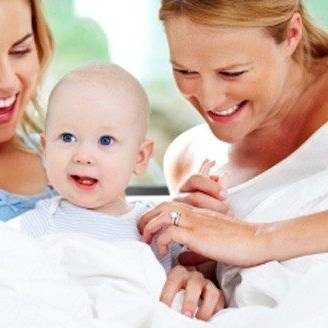 Individuals may choose to freeze their eggs for a number of reasons, such as to focus on their career, the desire to wait until they have found the right partner, or simply because they are just not ready to start a family yet.
Individuals may choose to freeze their eggs for a number of reasons, such as to focus on their career, the desire to wait until they have found the right partner, or simply because they are just not ready to start a family yet.
Egg freezing is also an option for individuals/couples wanting to delay parenthood; as well as for birth-designated females who are medically transitioning from female to male, but still want a chance to become a biological parent.
Individuals may consider egg freezing for a number of medical reasons, such as, cancer, a genetic disorder, or a family history of illnesses that could limit their fertility. Egg freezing can provide peace of mind to these individuals, knowing that they have done all they can to maximise their chance of having a baby in the future.
What is Involved?
If you are interested in egg freezing, you will be required to book an initial consultation with one of our specialists. At your first appointment, your specialist will discuss your medical and family history and arrange some pre-screening tests to better understand your current fertility health. Once these initial steps are completed, your specialist will outline a tailored treatment plan to suit your individual circumstances. A fertility coordinator will explain the process, medication and any potential risks or side effects of treatment.
As with all medications and medical procedures, side effects and potential risks are involved. We encourage you to discuss these with your treating specialist.
Egg Freezing treatment cycle generally follows these stages:
• Pre-treatment tests and preparation.
• IVF treatment information and discussion.
• Follicle growth treatment – fertility medications are used to stimulate the ovaries and promote the growth of follicles containing the eggs.
• Monitoring of follicle growth – developing follicles are monitored with ultrasound and/or blood tests to control their size and quantity.
• Egg collection – once follicles are large enough, they are carefully emptied to collect the eggs. The treating specialist performs this procedure after the patient has been given a general anaesthetic or light sedation.
• Vitrification – eggs are frozen and placed in storage in liquid nitrogen.
• Storage- The standard storage period for eggs is 10 years. This period can be exceeded only in certain circumstances. Our staff will be able to explain whether you can do this and for how long you may be able to store your eggs.
*We offer 6-months FREE storage for frozen eggs. * T&Cs apply. Speak to our friendly staff by calling 1300 222 623 to learn more.
Our parent-clinic, City Fertility, follows egg storage guidelines recommended by the National Health and Medical Research Council (NHMRC Ethical Guidelines 2017).
PLEASE NOTE: All fertility preservation procedures are carried out in our Reproductive Technology Accreditation Committee (RTAC)-accredited fertility clinics, where the eggs are stored.
Where do I Start?
If you are interested in freezing your eggs, please ask your GP or specialist for a referral to see one of our fertility specialists at Rainbow Fertility.
If you would like to find out more about our egg freezing services or or any other services we offer, please contact our friendly team.
Call: 1300 222 623
Email: [email protected]
Web: rainbowfertility.com.au



